In Conversation With Dr. Phuntsho Thinley, The 2020 ‘Green Oscar’ Winner From Bhutan
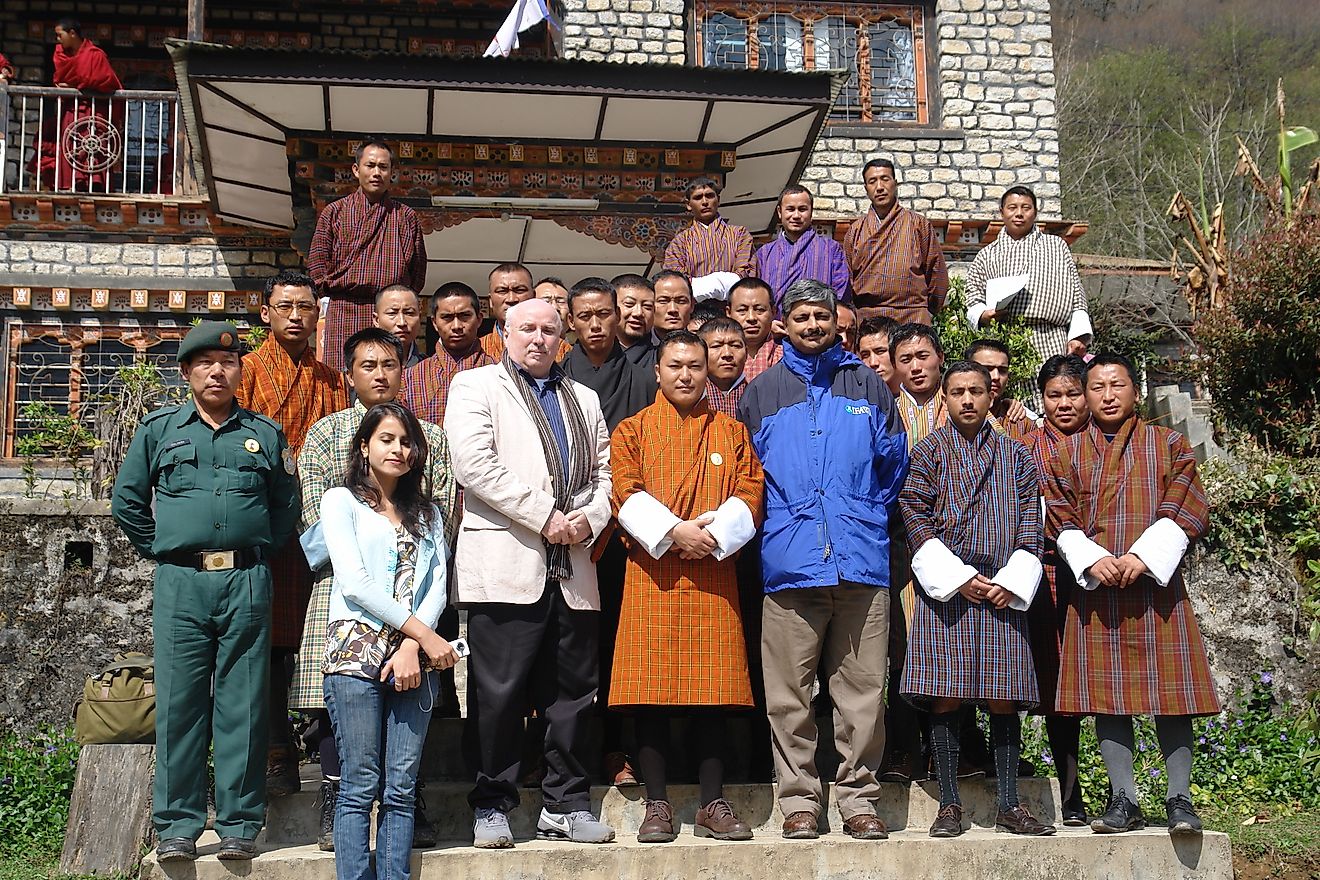
Bhutan, the tiny Himalayan Kingdom, has a lot to teach to the world. It is known as a nature-loving nation that measures its development in not just GDP but also GNH or Gross National Happiness. The latter is based on four pillars with one being the conservation of the environment. With over 71% of the land being forested, it is one of the greenest countries on this planet. Thus, it is not surprising that one of the six winners of the 2020 Whitley wildlife conservation awards (also called the "Green Oscars"), Dr. Phuntsho Thinley, a wildlife biologist, comes from Bhutan.
Born and brought up in Bhutan, Dr. Thinley's intense passion for wildlife conservation drove him to attain a Ph.D. degree in the field from Cornell University, United States. Returning to his homeland, he continued to work in various capacities in the field of wildlife conservation. He has several academic publications including government documents, books, and scientific papers published in numerous peer-reviewed journals related to his work.
He won the 2020 Whitley Award for his commendable work in preserving the rare musk deer that is indiscriminately poached for its musk pod. An estimated 100 musk deer are killed each year in Bhutan for this musk pod that is known to be more precious than gold in the international black market where it is sold for its perceived pharmaceutical properties.
Dr. Thinley and his team work in the Lingzhi park range of Bhutan where the musk deer forms an important part of the food chain. The region is also inhabited by around 700 people who collect medicinal plants and raise yak for a living. Poaching of the musk deer is rampant here but Dr. Thinley and other park staff are working diligently to reduce poaching in the area to protect the musk deer and other wildlife.
Dr. Thinley speaks to World Atlas about how he shaped his career in wildlife conservation and why he is striving hard to protect the musk deer and other wildlife in Bhutan.
In Conversation With Dr. Phuntsho Thinley
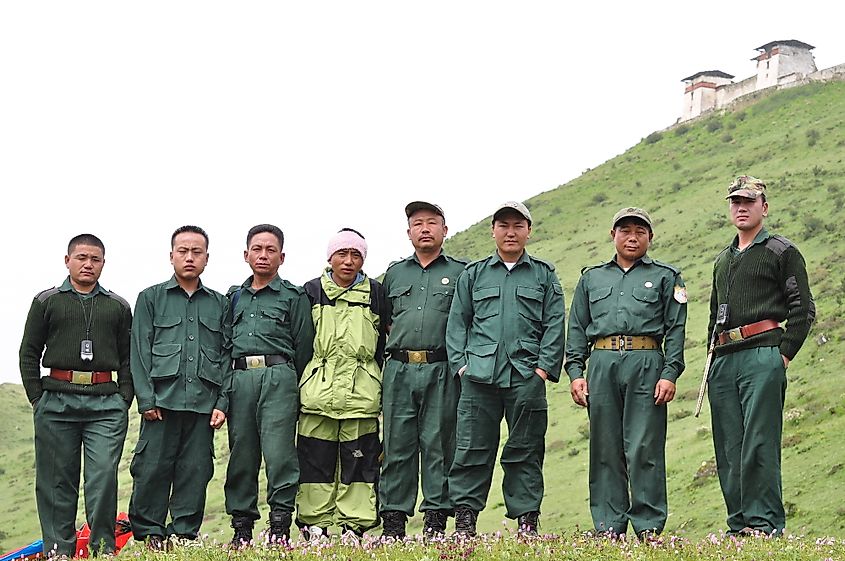
Dr. Phuntsho Thinley (third from right) with an anti-poaching patrol team of Lingzhi Park Range (LPR) in Jigme Dorji National Park, Bhutan.
How did you develop your passion for wildlife conservation? What events made you fall in love with nature? What/who inspired you?
Brought up on a farm in a remote location in Bhutan by parents who are farmers, nature was always an integral part of my life. Soon I realized the intricate relationship between nature and humans and started feeling the pressing need to conserve this bond and promote the harmonious co-existence between humans and wildlife. Our King's deep love for nature also inspired me greatly. Today, His Majesty's passion for conservation has allowed Bhutan to have one of the world's richest natural and cultural heritage.
How did you direct your education and career to allow you to pursue your passion?
Driven by my penchant for wildlife conservation, I took great interest in the biological sciences right since my high school years. After completing school, I pursued an undergraduate degree in Forestry and Natural Resources with a major in Forest Biological Science at the University of the Philippines at Los Baños (1998 – 2002). Following that, I was employed as a Forestry Officer at the Nature Conservation Division of the Department of Forest and Park Services of the Royal Government of Bhutan. Here, I received the golden opportunity to learn some of the key concepts of wildlife conservation and put them into practice. With a yearning to gain further knowledge in the field, I completed a Masters in Natural Resources (2006 – 2008) and then Ph.D. in Natural Resources (2009 – 2014) at Cornell University, USA, both in the field of wildlife conservation.
Bhutan is known for being a nature-loving nation. Did your country, culture, and beliefs play a role in influencing you to follow a career in the field of conservation?
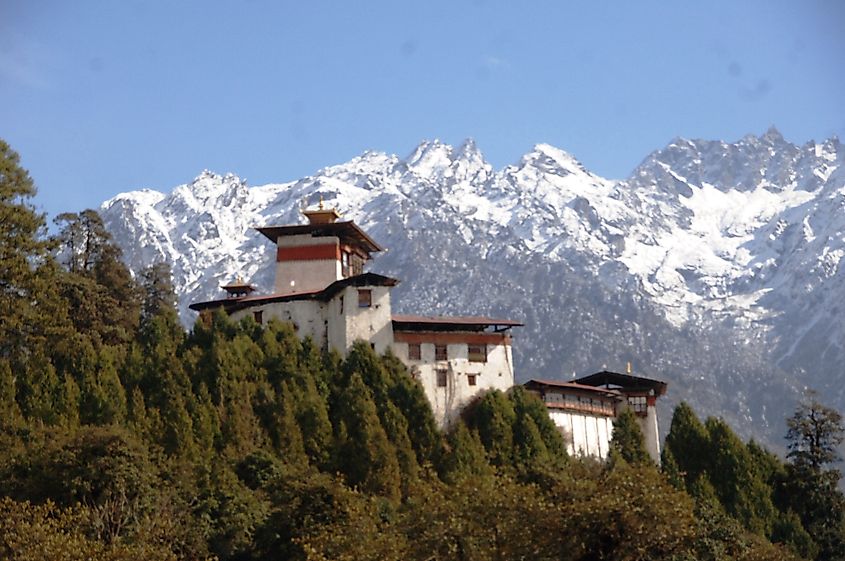
Bhutan is a predominantly Buddhist nation. Over 80% of the population practice Mahayana Buddhism which stresses that every sentient being in the universe has been your mother in a previous lifetime. Hence, we must treat them with the same love and care as we do our parents in the present life as a show of gratitude for their kindness towards us. This core Buddhist philosophy has largely influenced and invigorated my inner drive to pursue my dreams in wildlife conservation.
When did you start working on the conservation of the musk deer? Please brief us on the current conservation status of the musk deer in Bhutan?
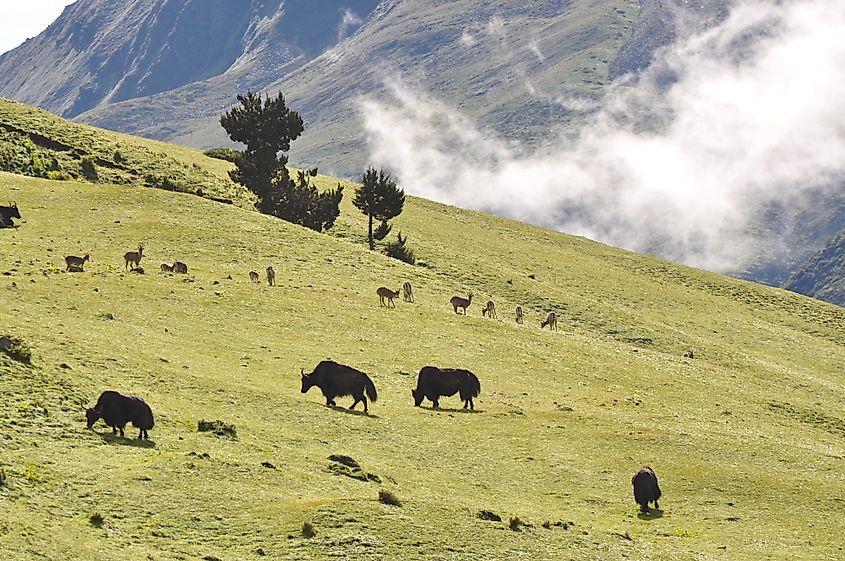
My first encounter with the musk deer happened in 2003 while I was collecting data on high altitude mammals for the project “Field Guide to Mammals of Bhutan,” where I have authored the section on "Ungulates – the hoofed mammals." Since then, I developed an immense interest in this highly-threatened animal and started initiating conservation measures for its protection in Bhutan. Intense poaching of the musk deer for its insanely priced musk pod is the biggest threat to the animal. There are seven globally recognized species of musk deer. All are threatened species of which six are "Endangered" on the IUCN Red List of Threatened Species and one (the Siberian musk deer) is labeled as "Vulnerable."
Although yet to be genetically validated, Bhutan is believed to harbor three species of musk deer: the alpine musk deer (Moschus chrysogaster); the Himalayan musk deer (Moschus leucogaster); and the black musk deer (Moschus fuscus). This is not surprising since Bhutan lies at the crossroads of two biogeographic realms, the Indo-Malayan and the Palearctic. There are no current estimates of musk deer populations in the country due to very limited scientific studies. However, evidence suggests that these animals are heavily poached and may face the risk of imminent local extinction in the near future if conservation measures are not adopted on an urgent basis.
What are some of the fascinating facts about the musk deer?
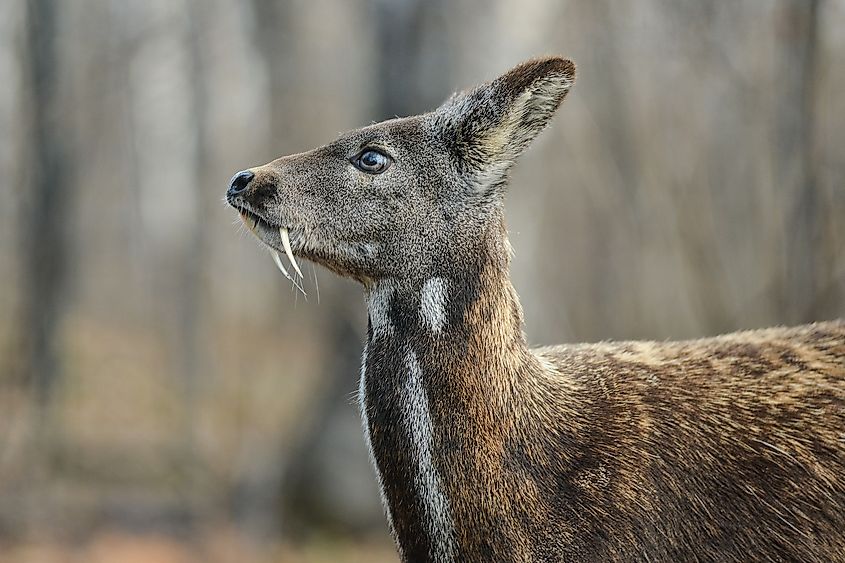
- Musk deer were once thought to belong to the deer family Cervidae, but they were later classified under a different family Moshidae with a lone genus Moschus.
- All musk deer species belong to a conservation category, so-called EDGE (Evolutionarily Distinct and Globally Endangered).
- By nature, musk deer are shy and solitary with peak activities during dawn and dusk.
- They do not have antlers. Males have a pair of tusks that are modified upper canines and are enlarged and more prominent in adult males.
- The adult males also have a scent gland called the musk gland at their abdominal portions used for attracting females during the breeding season.
- Unfortunately, this musk gland or musk pod also brings death to these animals as they are poached for the same. The musk pod is sold in the international black market at skyrocketing prices to be used for making perfumes, cosmetics, or pharmaceutical products.
- Since the musk deer maintain latrines, which means that they come to the same place for defecation, this peculiar behavior renders them vulnerable to poachers.
What are the major threats facing the musk deer in Bhutan?
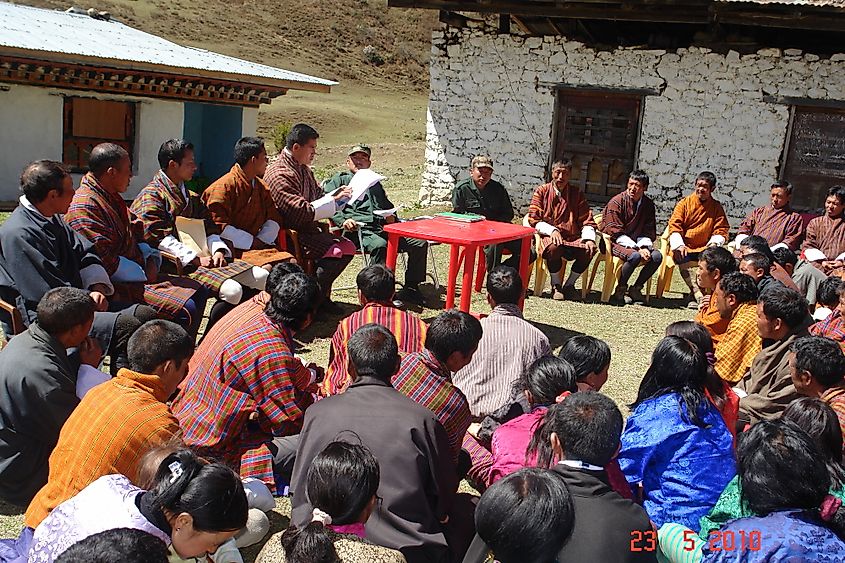
Poaching is the single biggest threat to these animals. Every year, several cases of musk deer poaching are tried in the courts of Bhutan and hundreds of traps are dismantled by the field foresters. Due to low population density and low-intensity development, habitat poaching is not a key challenge to musk deer conservation in the country. Bhutan continues to have an extensive forest cover of almost 71% of the total area of the country with little deforestation.
What actions did you and your team take to protect the musk deer?
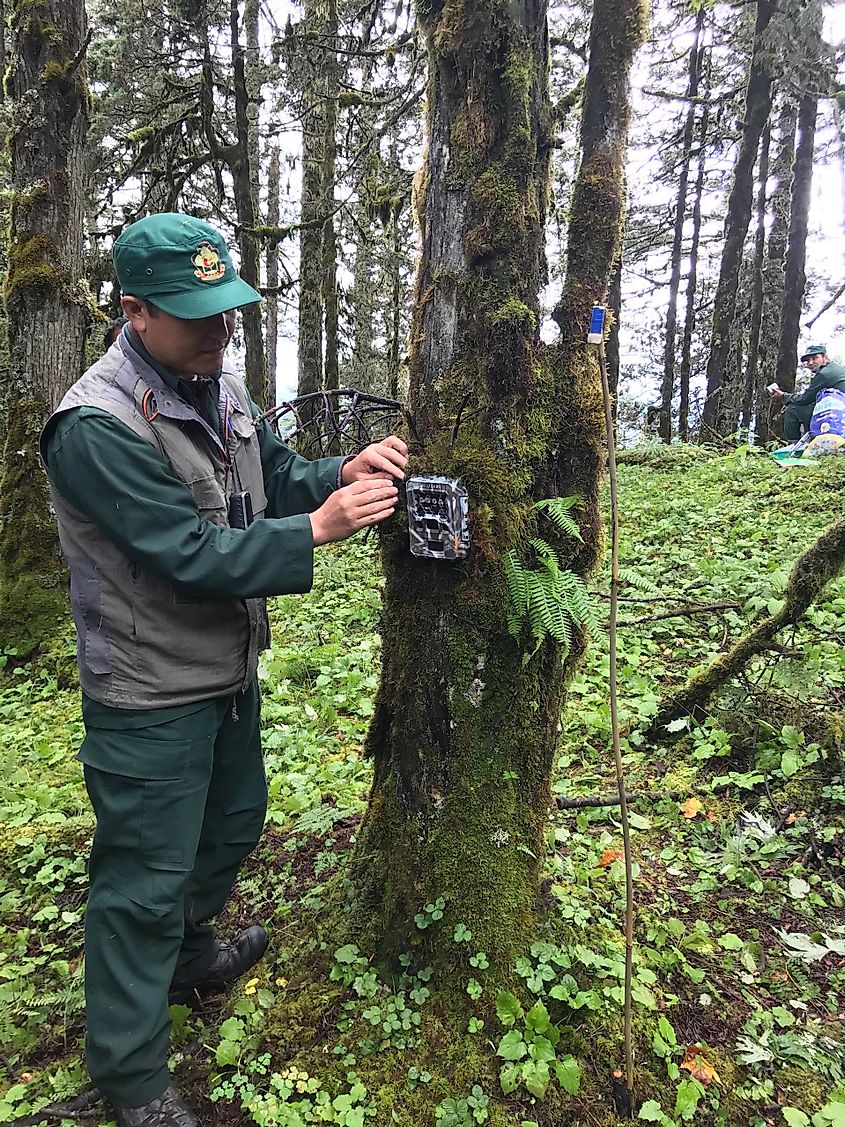
The Royal Government of Bhutan, particularly the Department of Forest and Park Services of the Ministry of Agriculture and Forests places a strong emphasis on conservation of rare and threatened species, most of which, including the musk deer, are listed as fully protected in Schedule I of the Forest and Nature Conservation Act of Bhutan 1995. Despite this strong legal protection and frequent patrolling by field staff, musk deer poaching is rampant, largely driven by exorbitant prices in the black markets. Me and my fellow conservationists and forest staff have been conducting regular patrolling to catch the poachers and to dismantle the traps set by them.
What are the major challenges faced by conservationists in protecting the musk deer in Bhutan?
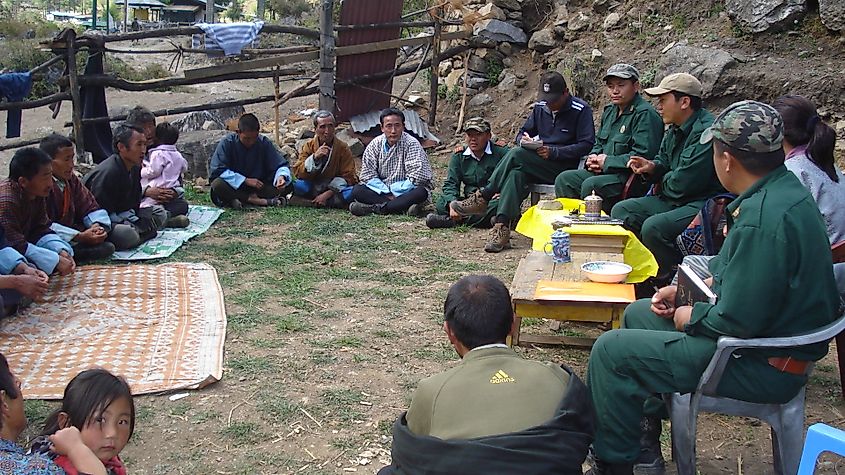
The biggest challenges are the highly rugged terrain, porous borders with easy access to international black markets, insufficient manpower and financial resources, and paucity of information. We still do not know much about the musk deer's ecology, population density and abundance, and distribution. As such, we cannot frame an effective musk deer conservation strategy other than stepping up anti-poaching patrols with limited staff. Moreover, the local communities are highly ignorant of the conservation significance of wild animals in general which is a great hindrance in garnering their support for the cause.
What were your feelings when you came to learn that you have won the prestigious Whitley Awards?
My happiness knew no bounds when I heard about winning the prestigious Whitley Awards, often dubbed the "Green Oscars." It is one of the highest honors one can get as a wildlife conservationist.
What are your current goals regarding the conservation of the musk deer in Bhutan?
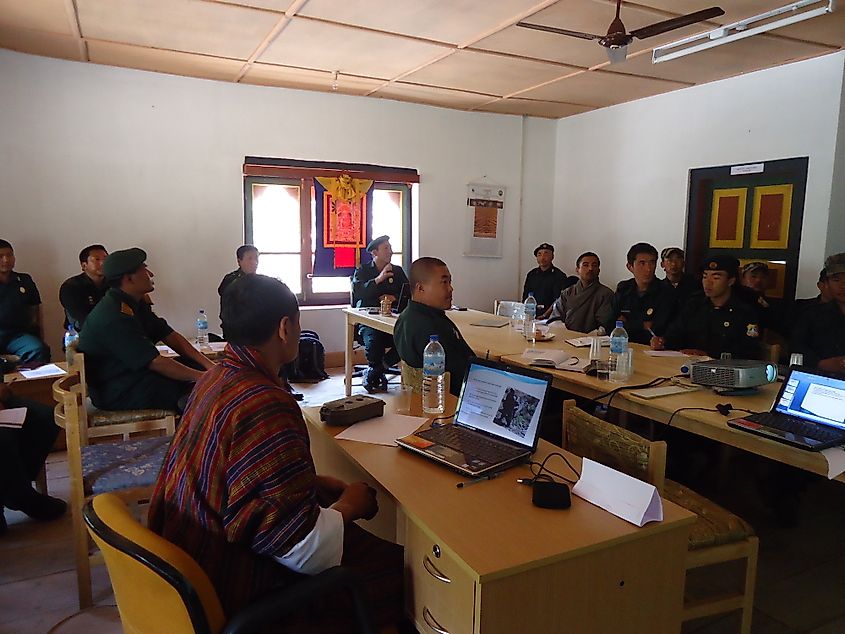
With the help of the Whitely Award grant, I plan to speed up anti-poaching patrols and enhance communal vigilance in partnership with the local communities whom I see as potential stewards with additional helping hands. More specifically, the fund will be used to train the local park staff as well as educate, train, and engage local people in musk deer patrolling, intelligence gathering, and field surveys.
What would be your message to the world about why it is important to save the musk deer?
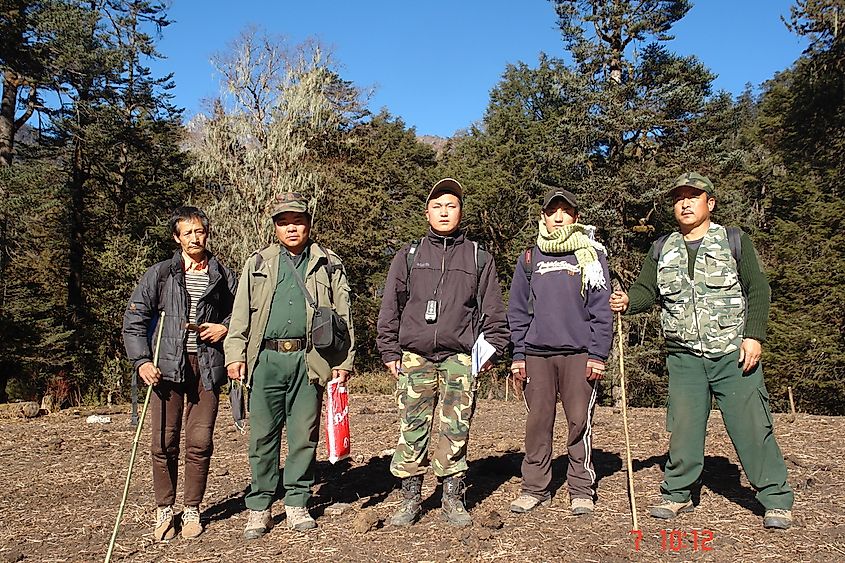
It is high time we focus on the conservation of the musk deer. If we lose the animal, its beneficial traits will be lost forever. The musk deer plays a vital role in the ecosystem. It serves as prey for iconic apex predators like the tiger and snow leopard. It also maintains the forest floor and alpine meadows. It certainly has a role in influencing ground water recharge and fresh water supply.
So, like all other creatures of nature, the musk deer is also important in maintaining the ecological balance and we must make every effort to save it for our brighter future. We must also support the work of wildlife heroes like Dr. Thinley by spreading knowledge and awareness about the need to protect the musk deer and other rare and threatened wild flora and fauna.











